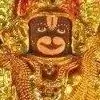The Birth of the Gita and Origin of Gita Jayanti



Independence movement
At a time when Indian nationalists were seeking an indigenous basis for social and political action, Bhagavad Gita provided them with a rationale for their activism and fight against injustice.Among nationalists, notable commentaries were written by Bal Gangadhar Tilak and Mahatma Gandhi, who used the text to help inspire the Indian independence movement. Tilak wrote his commentary while in jail during the period 1910-1911 serving a six-year sentence imposed by the British colonial government in India for sedition. While noting that the Gita teaches possible paths to liberation, his commentary places most emphasis on Karma yoga.No book was more central to Gandhi's life and thought than the Bhagavadgita, which he referred to as his "spiritual dictionary". During his stay in Yeravda jail in 1929,Gandhi wrote a commentary on the Bhagavad Gita in Gujarati. The Gujarati manuscript was translated into English by Mahadev Desai, who provided an additional introduction and commentary. It was published with a foreword by Gandhi in 1946. Mahatma Gandhi expressed his love for the Gita in these words:
I find a solace in the Bhagavadgt that I miss even in the Sermon of the Mount. When disappointment stares me in the face and all alone I see not one ray of light, I go back to the Bhagavadgt. I find a verse here and a verse there and I immediately begin to smile in the midst of overwhelming tragedies - and my life has been full of external tragedies - and if they have left no visible, no indelible scar on me, I owe it all to the teaching of Bhagavadgt.
Paramahamsa Yogananda's two volume commentary on the Bhagavad Gita called God Talks With Arjuna: The Bhagavad Gita was released 1995. Exploring the Gita's psychological, spiritual, and metaphysical depths, Yogananda reveals the innermost essence of this majestic scripture while presenting an enlightening and deeply encouraging guide to who we are, why we were created, and our place and purpose in the vast cosmic scheme of things.
Eknath Easwaran has also written a commentary on the Bhagavad Gita. It examines the applicability of the principles of Gita, to the problems of modern life.
Other notable commentators include Jeaneane Fowler, Ithamar Theodor, Maharishi Mahesh Yogi and Bal Gangadhar Tilak.
Pearls from Bhagavad Gita
Bhagavad Gita mainly deals with
Svadharma and svabhava :
The eighteenth chapter of the Gita examines the relationship between svadharma and svabhava."finding the fulfillment of the purpose of existence in the individual alone."Dharma : The first reference to dharma in the Bhagavad Gita occurs in its first verse, where Dhritarashtra refers to the Kurukshetra, the location of the battlefield, as the Field of Dharma, "The Field of Righteousness or Truth".Briefly the field of Dharma is the field of action.
Moksha: Liberation : Liberation or moksha in Vedanta philosophy is not something that can be acquired or reached. Atman (Soul), the goal of moksha, is something that is always present as the essence of the self, and can be revealed by deep intuitive knowledge. While the Upanishads largely uphold such a monistic viewpoint of liberation, the Bhagavad Gita also accommodates the dualistic and theistic aspects of moksha. The Gita, while occasionally hinting at impersonal Brahman as the goal, revolves around the relationship between the Self and a personal God or Supreme Soul. A synthesis of knowledge, devotion, and desireless action is given as a prescription for Arjuna's despondence; the same combination is suggested as a way to moksha.
Karma yoga - The path of Karma yoga upholds the necessity of action. However, this action is to be undertaken without any attachment to the work or desire for results. Bhagavad Gita terms this "inaction in action and action in inaction (4.18)". The concept of such detached action.
Bhakti yoga - The introduction to chapter seven of the Bhagavad Gita explains as a mode of worship which consists of unceasing and loving remembrance of God. Faith and total surrender to a chosen God (Ishta-Deva) are considered to be important aspects of bhakti.Lord Krishna said "He who does work for Me, he who looks upon Me as his goal, he who worships Me, free from attachment, who is free from enmity to all creatures, he goes to Me."
Gyaana yoga - Gyaana yoga is the path of wisdom, knowledge, and direct experience of Brahman as the ultimate reality. The path renounces both desires and actions, and is therefore depicted as being steep and very difficult in the Bhagavad Gita. This path is often associated with the non-dualistic Vedantic belief of the identity of the tman with the Brahman. For the followers of this path, the realisation of the identity of tman and Brahman is held as the key to liberation.
Ananyaaschinthayantho mamye janah paryupaasatheThesham nithyaabhiyukthanamyogakshemam vahaamyahamLord Krishna says that I shall take care of the well being, and welfare of that bhaktha who nurtures no other thought than me. He depends on nobody but Me. Those who always think of Me, who always hold on to my feet, I take care of their yoga and kshema." Yoga means attaining the unattainable. Kshemam means to keep safe that which is attained. Only these two are needed in life.karmanye vadhika raste,Ma phaleshu kadachana;ma karma phala he tur bhuh,ma te sangvasta karmaniTo action alone hast thou a right and never at all to its fruits; let not the fruits of action be thy motive; neither let there be in thee any attachment to inaction.
patram puspam phalam toyamyo me bhakty prayacchatitad aham bhakty-upahrtamasnmi prayattmanahGod will accept anything you offer with love and devotion, be it a leaf, a flower or water. The spiritual meaning of this means the body of the devotee should be the leaf, the flower is the heart and the water is tears of joy. We have to offer only these three.
yada yada hi dharmasyaglanir bhavati bharataabhyutthanam adharmasyatadatmanam srjamy ahamWhenever and wherever there is decline of dharma (righteousness) and ascendance of adharma (unrighteousness), at that time I manifest Myself in visible form. For the protection of the righteous and destruction of the wicked, and for the sake of establishing dharma again, I incarnate Myself on earth ages after ages.
Paritranaya sadhunamvinashaya cha dushkritam.Dharma sansthapanarthayasambhavami yuge yuge.For the up-liftment of the good and virtuous,For the destruction of evil,For the re-establishment of the natural law,I will come, in every age
bjam mm sarva-bhtnmviddhi prtha santanambuddhir buddhimatm asmitejas tejasvinm ahamI am present as the seed in all the living beings.Know Me as the eternal seed of all beings.
tad viddhi pranipatenapariprasnena sevayaupadeksyanti te jnanamjnaninas tattva-darshinahAcquire this transcendental knowledge from a Self-realized person by humble reverence, by sincere inquiry, and by service. The wise ones who have realized the Truth will teach you.
tani sarvani samyamya yuktaasita matparahvase hi yasyendriyanitasya prajna pratishitaOne should fix one's mind on Me with lovingcontemplation after bringing the senses undercontrol. One's intellect becomes steady when one'ssenses are under complete control.
Swami Sivanandaji of Divine Life Society , Rishikesh declares :---"If all the Upanishads should represent cows, Sri Krishna is their milker. Arjuna is the calf who first tasted that milk of wisdom of the Self, milked by the divine Cowherd for the benefit of all humanity. This milk is the Bhagvad Gita. It solves not only Arjuna's problems and doubts, but also the world's problems and those of every individual. Glory to Krishna, the friend of the cowherds of Gokula, the joy of Devaki! He who drinks the nectar of the Gita through purification of the heart and regular meditation, attains immortality, eternal bliss, everlasting peace and perennial joy. There is nothing more to be attained beyond this."


















































